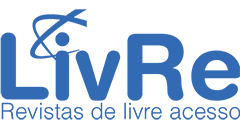Methods for Assessing Exposure to Plastic Pollutants in Procellariiformes: Review and Standardization of Protocols
DOI:
https://doi.org/10.37002/biodiversidadebrasileira.v11i3.1829Keywords:
Ocean, plastic debris, seabirdsAbstract
The presence of anthropogenic debris in oceanic waters and their ingestion by seabirds has been the subject of a growing number of studies. Procellariiformes are particularly susceptible to plastic ingestion, since they feed preferably on small prey on the waters' surface, where plastics tend to float and accumulate. Following an extensive literature review and practical application of techniques in the field and laboratory by the authors, we present a set of guidelines for sampling Procellariiformes to assess plastic ingestion. The guidelines suggest several sample type and sample source options, offering ways to approach different research objectives and overcome logistics constraints. Samples may be collected from dead beach-cast birds or those caught incidentally by fisheries. It is also possible to collect samples from live or dead animals in their breeding sites, rehabilitation centers, or non-invasively through feces, boluses and non-hatched eggs. In addition, we recommend analysis methods, necessary materials and cleaning routines to avoid contamination during collection and processing. The use of standardized protocols increases consistency and repeatability, allowing comparisons between investigations for a number of species, as well as the detection of large-scale spatiotemporal patterns.Â
Downloads
Published
Versions
- 2021-12-16 (2)
- 2021-12-16 (1)
Issue
Section
License
Os artigos estão licenciados sob uma licença Creative Commons Atribuição-NãoComercial-SemDerivações 4.0 Internacional (CC BY-NC-ND 4.0). O acesso é livre e gratuito para download e leitura, ou seja, é permitido copiar e redistribuir o material em qualquer mídia ou formato.












